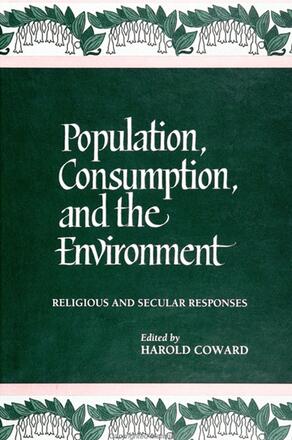
Population, Consumption, and the Environment
Religious and Secular Responses
Alternative formats available from:
Shows how the major world religions view the environmental problems of over population and excess resource consumption, and how they approach possible solutions.
Description
This book concentrates on the different ways in which the major world religions view the problems of overpopulation and excess resource consumption and how they approach possible solutions. After examining the natural background and the human context, the book moves on to consider both religious and secular approaches.
It analyzes how a particular religion's scriptures comment on the nature of people, the environment, people's place in the environment, and their roles and responsibilities. The historical dimension is derived from reviewing a particular religion's record in teaching about these issues, often demonstrating how broader issues are addressed. Practical lessons are learned from religious guidelines that deal with current problems and offer solutions.
The authors consider Aboriginal spirituality, Judaism, Christianity, Islam, Hinduism, Buddhism, and Chinese religions. The secular approaches include secular ethics, North-South relations, market forces, the status of women, and international law.
Harold Coward is Director of the Centre for Studies in Religion and Society at the University of Victoria. He is the author of Derrida and Indian Philosophy and Jung and Eastern Thought; editor of Modern Indian Responses to Religious Pluralism; and co-editor of Derrida and Negative Theology and Hindu Ethics: Purity, Abortion, and Euthanasia, all published by SUNY Press.